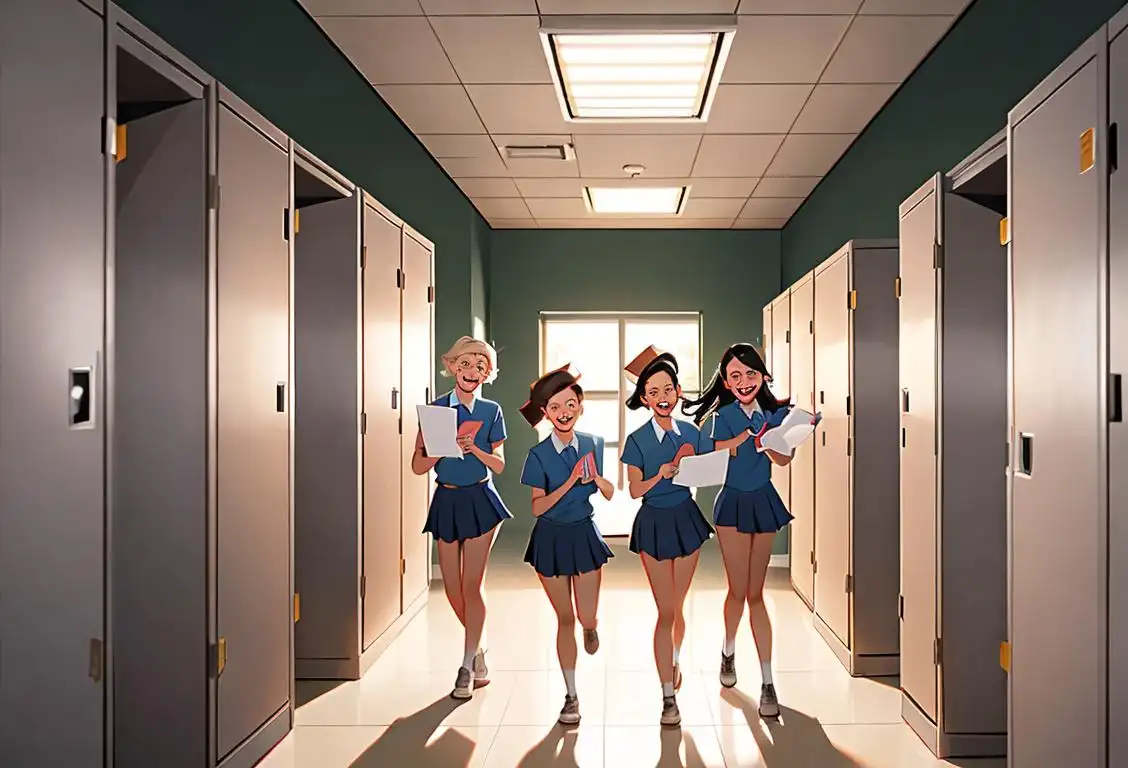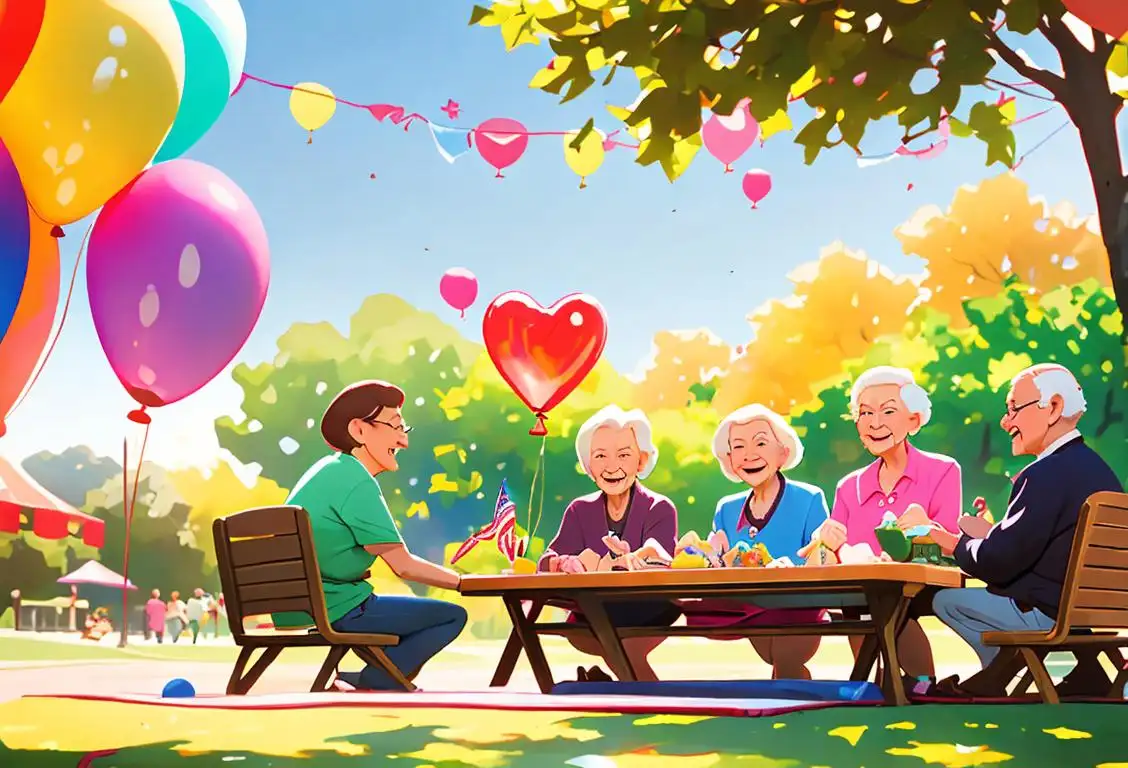National Senior Skip Day

Ah, National Senior Skip Day, the one day where students across the country unite in rebellion against the chains of education. It's a day filled with freedom, excitement, and probably a few detention slips. Let's dive into the wild history of this infamous day!
When is Senior Skip Day?
It's national senior skip day on the 17th May.
The Origins of National Senior Skip Day
Senior Skip Day has become a tradition observed by high school seniors in many parts of the United States. It's a day where seniors decide to ditch their responsibilities, books, and pencils in favor of some good old-fashioned fun. But have you ever wondered where this rebellious tradition originated?
Contrary to popular belief, National Senior Skip Day is not an official holiday sanctioned by the education system. It's more of a grassroots movement fueled by the desire for a little rebellious adventure in the final stretch of senior year. While the exact origins are a bit hazy, it's believed to have started as early as the 1970s. Some say it began as a spontaneous act of defiance, while others claim it was a deliberate attempt to protest against the pressures of schooling.
Regardless of its origins, National Senior Skip Day quickly gained notoriety and spread like wildfire across high schools in the United States. It became a day that seniors eagerly anticipated, marking their calendars with bold letters and secret plans.
The authorities, of course, were not too thrilled about this tradition. Schools often tried to discourage Senior Skip Day by implementing stricter policies and penalties for those who chose to participate. But let's be real, when has a stern warning from a principal ever stopped a determined teenager?
Over the years, Senior Skip Day has evolved into a day of pure celebration and making memories. It's not just about skipping class; it's about embracing the freedom of youth, cherishing friendships, and creating unforgettable experiences.
Celebrating National Senior Skip Day
So, how can you celebrate National Senior Skip Day?
- Gather your fellow seniors and plan an epic adventure. Whether it's a day at the beach, a road trip, or recreating your favorite movie scenes, the key is to make it unforgettable.
- Organize a senior skip day event at your school. Get permission from the school officials, plan fun activities, and create a day of celebration that everyone can enjoy (with minimal consequences).
- Create a senior year bucket list. Use Senior Skip Day as a launching pad to tick off some of the wildest and most cherished experiences on your list. Skydiving? Scuba diving with sharks? The possibilities are endless!
Did You Know?
Did you know that Senior Skip Day is not just limited to high school seniors? College seniors have been known to embrace this rebellious tradition as well. It seems like the desire to skip responsibilities transcends age and educational institutions!
History behind the term 'Senior Skip'
1970
Rise of Senior Pranks
During the early 1970s, it became a tradition for high school seniors in the United States to pull pranks during their final year. These pranks were often harmless and served as a way for seniors to express their rebellion and celebrate the upcoming end of their high school journey. Some of these pranks included harmless acts like releasing crickets in the school or covering the hallways with plastic wrap.
1960s
Senior privilege
In the 1960s, the term 'senior skip' originated as a reference to the privileges senior high school students were granted. As seniors approached their final year of high school, they often enjoyed certain privileges such as having a more relaxed schedule or being able to leave school early. This concept of 'senior privilege' laid the foundation for the term 'senior skip' as we know it today.
1970s
Senior ditch day
During the 1970s, 'senior skip' started to be commonly referred to as 'senior ditch day'. This term emphasized the act of senior students purposefully skipping school altogether. It became a tradition for seniors to choose a specific day, usually near the end of the academic year, to collectively skip school and enjoy a day of freedom outside campus. 'Senior ditch day' gained popularity among students and eventually became an anticipated event in many high schools.
1985
The Emergence of Senior Skip Day
In the mid-1980s, senior students started organizing informal events where they would skip school for a day. This tradition quickly gained popularity and spread across high schools in the United States. Senior Skip Day became a way for graduating seniors to mark their impending transition to adulthood and enjoy one last carefree day with their classmates.
1980s
Senior skip day
By the 1980s, 'senior ditch day' evolved into 'senior skip day,' most likely due to a desire for a less negative connotation. 'Senior skip day' became an official day reserved for seniors to skip school, often with the school's unofficial permission or leniency. It became a well-known tradition, and in some schools, teachers and administrators even joined in on the fun. This day allowed seniors to bond, relax, and celebrate their upcoming graduation.
1990
The Term 'Senior Skip' is Coined
By the 1990s, the term 'Senior Skip' had officially entered the lexicon. It became the common phrase to describe the act of senior students collectively deciding to skip a day of school. The term spread rapidly through schools and communities, becoming synonymous with the tradition of Senior Skip Day.
Present
Senior skip as a broader phenomenon
Today, 'senior skip' has become more than just a single day or event. It has turned into a broader phenomenon where seniors may skip school on multiple occasions throughout their final year. Some schools have even embraced this tradition by including scheduled 'senior skip days' in the school calendar. While there are debates about the educational impact and responsibility associated with skipping school, the term 'senior skip' has undoubtedly become ingrained in the cultural fabric of high schools and is seen by many as a rite of passage for graduating seniors.
2000
Digital Age and Social Media Influence
With the rise of the internet and social media platforms in the early 2000s, the tradition of Senior Skip Day gained even more visibility and participation. Students started organizing and promoting their Senior Skip Day activities online, sharing their plans and experiences with their peers. Social media platforms provided a means to coordinate and communicate, making it easier to rally large groups for the event.
Present
Senior Skip as a Rite of Passage
Today, Senior Skip remains a cherished rite of passage for graduating high school seniors. While not officially sanctioned by schools, many institutions have come to accept it as a long-standing tradition. It continues to be a day of celebration, bonding, and making lasting memories with classmates before embarking on new journeys after high school.
Did you know?
Did you know that Senior Skip Day is not just limited to high school seniors? College seniors have been known to embrace this rebellious tradition as well. It seems like the desire to skip responsibilities transcends age and educational institutions!Tagged
fun memories youthFirst identified
8th April 2015Most mentioned on
17th May 2017Total mentions
191Other days
Senior Skip Day
Sibling Sibling Day
Daiquiri Day
Prosecco Day
Vote For Donald J Trump Day
Creamsicle Day
Arsenal Day
Ice Cream Sandwich Day
Senior Citizens Day
Youth Enrollment Day








